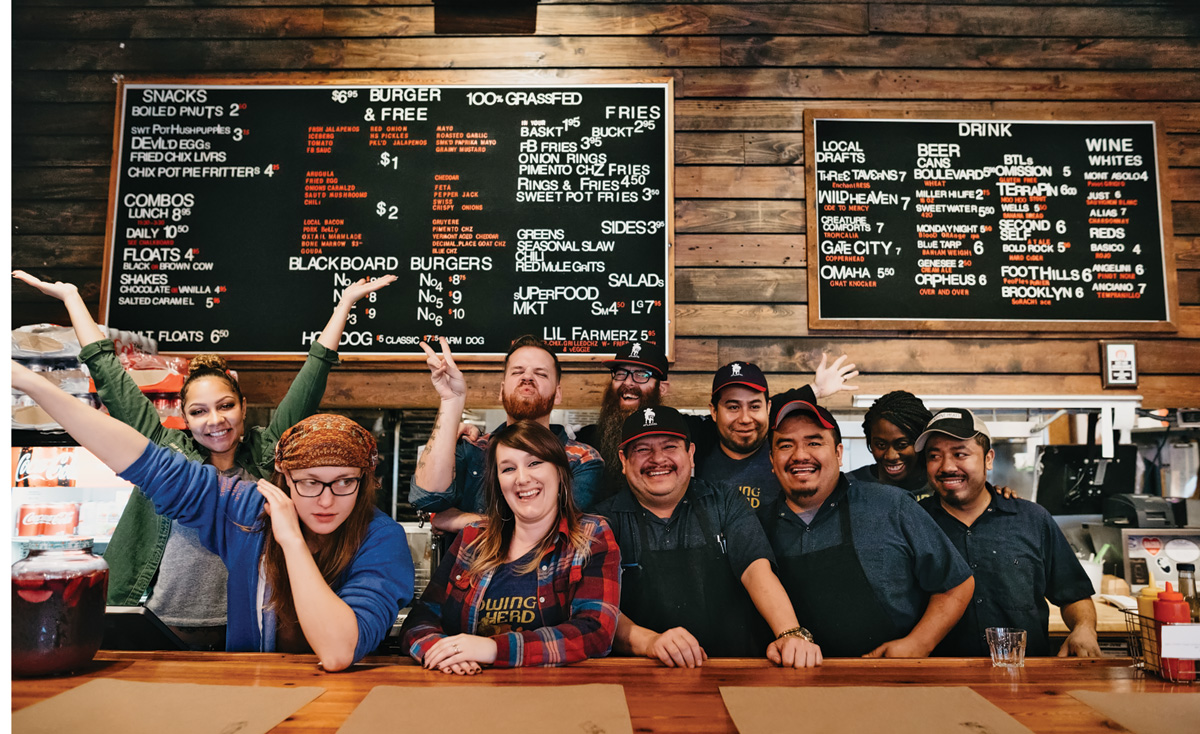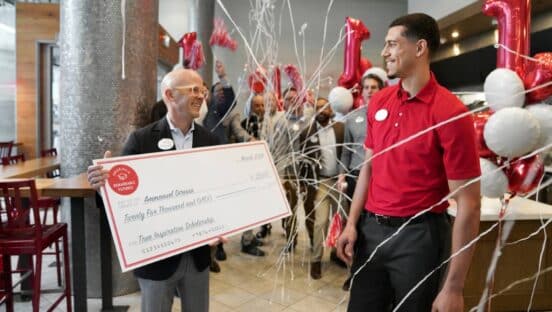In an economy where one-of-a-kind experiences increasingly outweigh goods and commodities, restaurants are looking beyond serving value-conscious, high-quality meals. In addition to food and beverage, environment, technology, and service all play into the thoughtful and complete experience that diners crave. But what about the employees?
Michael Kornick, co-owner of Chicago-based DMK Restaurants, says limited-service employers should treat staff much the same as they do guests. Tending to the employee experience has a trickle-down effect. “If we can show staff we care about them, they will translate that to guests. When guests feel taken care of, that leads to brand loyalty,” Kornick says.
Here are three companies at the forefront of the employee experience.
Thinking outside the cone
During peak scooping season, Burlington, Vermont–based ice cream concept Ben & Jerry’s employs 10,000 across 600 shops that span the globe. Going home with three pints of free ice cream per day is an undeniable employee perk, but senior franchise operations and development manager Colette Hittinger says the company recently dug deeper to identify opportunities to enrich its workforce.
A company-wide survey revealed that 80 percent of employees are between the ages of 16 and 24, and of that group, 80 percent reported that Ben & Jerry’s was their first-ever job. Hittinger says the company has a unique obligation to develop this young adult workforce. As a result, it rolled out a handful of employee programs—none of which has anything to do with ice cream.
One such offering, Core Academy, is a series of free online courses covering topics like social equity, emotional intelligence, and activism. “In the end, we want these people to feel like they did more than scoop ice cream and to say that this job helped equip them for life,” Hittinger says.
So as not to neglect anyone, Ben & Jerry’s has also created opportunities tailored to its more seasoned employees. Annual meetings—once reserved for franchisees only—are now open to select team members. Franchisees are encouraged to invite store employees to the event, where they meet cofounders Ben Cohen and Jerry Greenfield, CEO Jostein Solheim, and the board of directors.
Not only do these meetings help employees feel like they’re part of the bigger picture, Hittinger says, but they can also drive sales. Franchisees who bring team members to annual meetings report higher average sales and sales growth than those who do not.
Best of the best
For Kornick and DMK co-owner David Morton, being one of the best places to work is a goal in line with their company culture.
“From an ownership standpoint, we’re trying to achieve what we call an ‘est’ factor: happiest guests, best food, and so on,” Kornick says. “Restaurants that last for a long time have achieved some level of ‘est’ along the way.”
Taking employees’ personal circumstances into consideration can go a long way toward achieving that goal. It could mean creating a mother’s schedule to accommodate daycare or allowing an employee to take a weeklong family fishing trip. “You have to be willing to address each issue with the same individual recognition as you would a guest at your restaurant,” he says.
In 2017, DMK gifted its staffers with another ‘est’ when it opened what is arguably the coolest of all employee lounges: Werewolf Coffee Bar. The sunny, naturally Instagrammable space features craft coffee and snacks served out of a stationary refurbished Wonder Bread truck.
While Werewolf Coffee is a consumer-facing concept, Kornick and Morton also created it to be a gathering place for their staff. With 500 employees spread over 10 restaurants, Kornick says, it’s important to have a place where employees can relax together—and enjoy free coffee to boot.
DMK’s new corporate headquarters is located just around the corner, and Kornick and Morton leave those doors open to all staff. The office boasts ping-pong, a small bar, and a great room that offers yet another space for employees to gather. “Each time we evaluate where we’re at, we’re happily surprised by how much fun we’re having trying to create a great company,” Kornick says.
The cream of the crop
At Farm Burger, the employee experience skews toward the educative. That’s not to say the 13-unit, Atlanta-based fast casual coops its staff up in long-winded seminars. Instead, it opts for a free-range approach.
“The question is: What makes a difference and makes people want to work with us?” says cofounder Jason Mann.
Farm Burger works to maintain a meritocracy. “Every dishwasher can be a manager; every manager can be a dishwasher,” Mann says. “When you’re a company as small as us, you can’t promise the world, but it’s so important to give everyone the idea that there is opportunity here.”
Field trips are certainly not the norm for restaurant workers, but then again, few employers feel as strongly about responsibly sourcing ingredients as Mann, who himself was a farmer. As such, each new hire spends a day at a local farm getting schooled in the production system.
The experience not only yields employees who are knowledgeable across the board, but it also cultivates passionate brand advocates. “Whether someone’s bartending, cooking, or whatever, they can talk to guests first-hand about our farm partners,” Mann says.
Farm Burger is also willing to pay for professional development. “You want to do a fermentation workshop to learn to make sauerkraut? Cool, I’m all about it,” he says. “If we’re happy and successful, the tide rises for everyone.”













